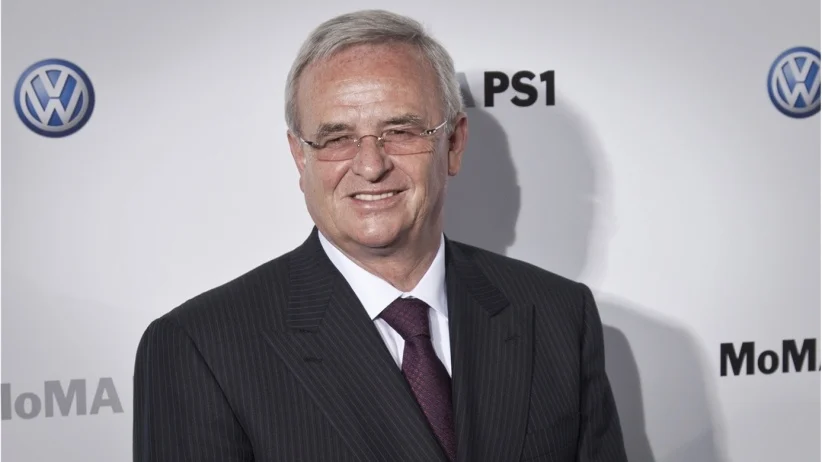
Source : Link
Sending shockwaves throughout the media, the auto industry and leadership circles, Volkswagen recently admitted to deceiving regulators about its cars’ emissions by equipping 11 million vehicles with software that could be used to cheat on emissions tests.
Next, CEO Martin Winterkorn resigned, expressing shock that misconduct on such a scale could happen at the company. German prosecutors immediately launched an investigation into his veracity. At this point, Winterkorn’s departure leaves us with only two possible outcomes: First, he was lying — he knew about the deliberate attempt to deceive regulators. Or, second, he didn’t know what was happening right under his nose.
In either scenario, Volkswagen’s mistake stems from toxicity in the culture, and that always starts at the top.
Let’s be realistic. Fraud at this magnitude could not have been committed by one person or by just a small group. If Winterkorn did not know about this (as he claims), then we must also conclude that internal and external audit procedures were completely lacking. In a healthy culture, a company has no harsher critic than itself and has processes in place to root out misaligned behavior. While a CEO cannot be expected to know everything, he or she has the duty to have procedures in place to detect gross misconduct like this.
During his tenure, CEO Winterkorn pledged to overtake GM and Toyota as the world’s largest automaker, and earlier this year, he did just that. This goal became the company’s rallying cry, but at what cost? Were these driving forces so critical that they created an internal belief structure that essentially said, “We will meet these objectives at any cost — including compromising our integrity”?
As leaders, we must be cognizant of the giant shadow we cast. A “growth at all costs” mentality impacts how employees conduct themselves, driving many to conform their behaviors to follow the CEO’s lead. Some leaders do not want to hear any thoughts that might interfere with their growth goals. They are so locked into a plan that anything contradicting it is heresy. This creates a culture of fear; none of us want to be the bearer of bad news. At Volkswagen, the path of least resistance was installing software designed to cheat, as opposed to coming to terms with the fact that a properly functioning diesel engine may have been prohibitively expensive to produce.
It is up to leaders to set the example by living and breathing their company’s values. Integrity is the most valuable asset, and the cost of leading without integrity has a direct impact on everyone around you. A leader must set the example, know what is happening at his or her company and establish and anchor an unwavering culture of empowerment and honesty which promotes accountability and communication. The choice is not an “either/or” proposition — to grow or live by common-sense values. Leaders must ensure both.
Related: 6 Actions to Prevent Your Company Becoming the Next Volkswagen
If we assume that Winterkorn did not know about this fraud, how could this have happened? The CEO was responsible for knowing what was happening at his company and establishing a culture where communication would flow in all directions. A lack of communication is often the result of silos and/or a culture of fear. If teams are working independently, rather than for the greater good of the company, siloed behavior can result.
Employees may not be empowered (or may be afraid) to call a time-out or speak up when an issue arises that is out of line with the company’s values. Employees must be empowered to do what is right, even when no one is looking. They must be empowered to come forward with bad news, with no fear of retribution.
What if you were an employee at Volkswagen and were confronted with the fact that your diesel engine as designed did not not perform to specification? Would you have installed the deceptive software? No employer has the right to ask an employee to compromise his/her personal integrity, and a leader or manager should never allow himself/herself to be pushed in a direction that is out of line with common-sense values. An empowered team that works transparently within a framework of core values is a sure-fire way to create a culture where checks and balances occur.
In the end, your values as a leader are your most important personal asset. As recently as last week, commentators were still praising Winterkorn for his tripling of VW’s profits. Did those commentators subsequently consider the cost to Volkswagen of billions of dollars in fines, destroyed customer goodwill, loss of reputation and the real cost that will be required to produce the engine? When the tally is complete, Winterkorn’s record of profit will be diminished. But, his personal reputation will be harmed even more. There will always be an asterisk attached to his legacy.
For business leaders, the choice is: Do they want to leave behind a legacy of success and integrity? Or, do they want a legacy which built the bottom line but sacrificed core values? The asterisk is in their control.
